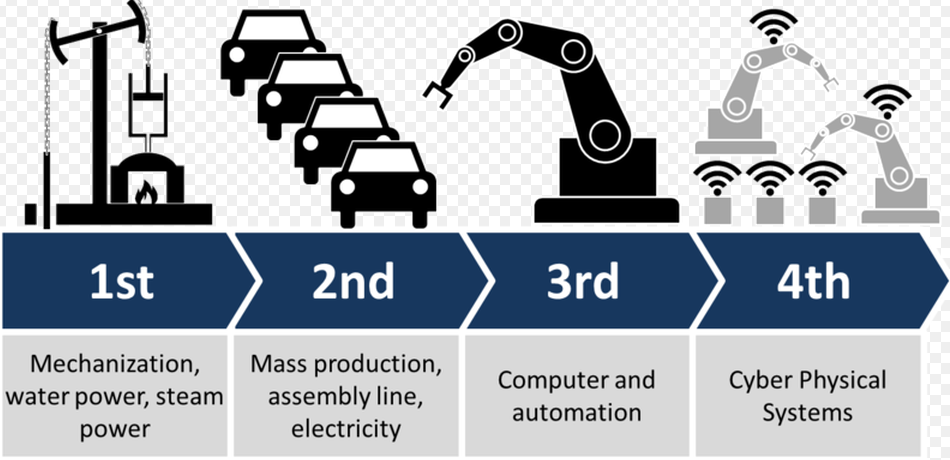
32 Ways on How to Save Tax Legally!!!
Do you feel that you are paying too much tax? Have you ever thought of how to save tax from your taxable income?
Whether you are a veteran taxpayer or a first timer, if you haven’t been planning your taxes properly, you have likely been paying more tax than you should. Income Tax laws appear so complex that people are scared to deal with their taxes. Why won’t they be scared? After all, the man with the greatest mind, Einstein himself called taxes the hardest thing to understand. Such people let their employers drain plenty of money as TDS from their salary.
Don’t fall in such category. Honestly, saving taxes isn’t as difficult as you think it is. There are so many things that you do unknowingly which can save your tax. All you need to do is to claim the tax benefits. If you put little effort, you can save more tax than you can imagine. In this article, H&R Block brings you some completely legal ways of saving taxes.
Let’s talk about tax saving expenses first. We incur several regular expenses which make us eligible for tax benefits but we fail to utilise them due to our ignorance. Here are some common expenses which can save a lot of taxes for you.
Common Tax Saving Expenses
1) Tuition fees:
We often spend a considerable amount of our income to provide best education to our kids. I-T laws provide you opportunity to compensate the expenses you incur on their tuition fees by reducing your taxes. You can claim this deduction u/s 80C of I-T Act.
[ Read: Claim Tuition Fees as Tax Deduction ]
2) Deduction on rent paid (without HRA):
Don’ t worry if you don’ t get HRA in your salary as you can still get tax benefit as per the provisions of section 80GG of I-T Act.
3) Repayment of home loan:
You will be glad to know that the burden of your home loan EMIs can reduce the burden of taxes. You can get the benefit on both principal & interest component of your instalments. If you are paying for your first house then you can save even greater amount of tax. All these deductions are covered under section 24, section 80C and section 80EE.
4) Repayment of education loan:
Due to rising costs of educational courses, people often go for education loans when it comes to higher education. Just like deduction available on tuition fees, your education loan EMIs also bring tax benefits to you. Income Tax Act has separate provision under section 80E to provide you this tax benefit for interest paid on your education loan.
[ Read: Tax Deduction on Education Loans under Section 80E ]
5) Pension funds:
Ideally, the day you start earning money should be the day you start planning your retirement.
One of the best ways to do this is to start investing in pension funds. Fortunately, you can also reduce your taxes when you contribute to certain pension funds. Provisions regarding tax benefits in this case are covered under section 80C / 80CCC / 80CCD(1) / 80CCD(1B) / 80CCD(2).
6) Medical insurance & health check-up:
These expenses are a regular part of every person’s life. Much to your relief, tax laws let you make some tax gains if you spend any money towards medical insurance & preventive health check-up. You can get deduction up to Rs. 60,000 under section 80D of the I-T Act. Just make sure not to pay your premiums in cash.
Other than these common expenses, there are some uncommon and less known expenses which can help you further reduce your tax liability.
Less Known Tax Saving Expenses
7) Medical expenses of disabled dependent:
If you have a dependent person in your family who is suffering from a disability, then you can avail tax benefit under section 80DD. This deduction is offered to help you take care of your disabled family member who is dependent on you. It can help you save up to Rs 1,25,000 from your taxable income.
8) Medical expenses of disabled individual:
Similar to deduction under section 80DD, an individual suffering from disability himself gets tax benefit under section 80U. The maximum deduction limit under this section is Rs 1,25,000.
9) Treatment of specified diseases:
For certain specific diseases, Income Tax Department offers tax benefits to the individual u/s 80DDB on the basis of expenses incurred by him for the treatment of such diseases or ailment. Treatment of diseases like cancer and AIDS is very expensive and this section offers much needed financial relief to the person suffering from such ailment and his family members.
If you love doing charity, I-T department is also ready to help you in return for your charitable deeds. There are several types of donations which are exempt under Income Tax Act.
10) Charitable donations:
There is another reason to rejoice when you make donations. You not only boost your karma & achieve inner peace but also earn right to claim another tax exemption which is covered under section 80G. There is an upper limit on cash donations. Such donations are capped at Rs 2,000.
11) Donations for scientific research or rural development:
Any donation made for scientific research or rural development is eligible for deduction under section 80GGA of the Income Tax Act.
Other than these expenses, there are several avenues which can help you save taxes voluntarily. If you have surplus money which you want to invest, then why not invest in options which can fetch you dual benefits, i.e. lucrative return as well as tax exemption.
Best Tax Saving Investments under Section 80C
12) EPF:
If your employer has opened an EPF account for you, then you are already investing in a very lucrative investment option. The contribution that you make to your EPF or PF account can be claimed as deduction under section 80C. The interest income & maturity amount that you get as a result is also exempt from tax if you have completed 5 years of service.
13) VPF:
12% of your basic salary goes as a mandatory investment in your EPF. However, you can choose to invest more (up to 100%) of your basic salary + DA through voluntary contributions. In case you choose to invest more, your EPF becomes your VPF. VPF earns you tax-free interest of 8.4%. Therefore, you can increase your contributions in VPF to get the most out of your deductions under section 80C.
14) PPF:
Other than PF, you can also invest in PPF. It is a good option if you looking for long-term investment opportunity. Just like PF, you can get tax deduction on your contributions while resulting interest income & maturity amount stays exempt from tax.
15) Sukanya Samriddhi Scheme:
This is arguably one of the best tax saving investment options available today. Its tax benefits are also covered under section 80C. It offers higher rate of return on investment when compared to PF & PPF. However, this scheme is only available to parents or guardians of a girl child.
[ Read: Details of Sukanya Samriddhi Scheme ]
16) NPS:
It is a saving scheme offered by postal department. It is considered a highly secure option having almost zero risk. Your contribution to this scheme makes you eligible for section 80C deduction. Though interest earned is taxable, it also qualifies for deduction under section 80C
17) 5 years post office time deposit account:
Five years fixed deposits can be opened with any branch of Indian Post Office. These deposit accounts work like any other fixed deposit account except that they have a lock-in period of five years and offer the double benefit of return on investment and tax deduction.
If you are a salaried taxpayer, the below-mentioned tips will be very helpful in saving taxes.
Tax Saving Tips for Salaried Individuals
18) HRA Deduction for Rent Paid:
If you look at your salary carefully you will find that it has a component called HRA. This allowance can be claimed as a tax deduction, if you live in a rented place.
[ Read: HRA Exemption Rules ]
19) LTA Deduction for Travel Expenses:
LTA is another component of your salary which can fetch you tax benefits. LTA concession can be claimed for two journeys in a block of 4 years. Expenses incurred by you & your family on travel for which your employer gives LTA can be claimed as deduction.
[ Read: Leave Travel Allowance Rules ]
20) Donations to Political Parties:
You may not know this but supporting politics can also reduce the burden of your taxes. Any donation made to political parties is exempt from tax if it satisfies certain conditions under section 80GGC.
21) Tax Benefit on Gratuity:
Gratuity received on retirement or on becoming incapacitated or on termination or any gratuity received by the widow of the deceased employee, children or dependents is exempt up to Rs 10,00,000 (proposed to be enhanced to Rs 20,00,000) subject to certain conditions.
22) Meal Coupons:
Some employers provide meal coupons like Sodexo to their employees. These aren’t taxable up to Rs 2,600 p.m.
23) Medical Bills:
It is beneficial to keep the receipts of medical expenses safely to save tax. You can gain tax benefit of up to Rs 15,000 on medical expenses for yourself and your dependents. This exemption is proposed to be replaced with the standard deduction from FY 2018-19.
24) Daily Travel Allowance:
Employees can also get tax benefits on conveyance up to Rs 1,600 per month from their employer. One can save as much as Rs 19,200 per annum on tax through conveyance allowance. Moreover, to claim this benefit one does not need to submit any bills or proofs.
Some companies have the policy of daily travel allowance if an employee is commuting by car or bike. Employees can claim the benefit by submitting original fuel bills. The limit of tax benefit depends upon the type and capacity of vehicle.
25) Car Leased by Employer:
If someone is making use of car lease policy offered by his employer, he can drive a car leased by his employer and therefore save tax on car EMI since he may not require buying a car. In this case, he cannot take the benefit of Daily Travel Allowance.
26) Expenses Related to Internet or Phone:
Employees often get mobile phones and internet devices from their employer to do their jobs effectively. Expenses incurred in using these devices are either pre-paid by the employers or can be reimbursed by the employees. Tax benefits can be claimed on these expenses.
27) Money under VRS:
Public sector employees working under the Central government or State government can get this additional tax benefit. When such employees take voluntary retirement, the money they receive as a result of VRS is non-taxable up to Rs 5 lakh.
Now, let’s have a look at some tips for business persons to save taxes.
Tax Saving Tips for Business Persons
28) Distributed Profit to Partners in Partnership Firms:
There is no tax in the hand on partners if their partnership firm is making profits and partners decide to distribute profits among themselves. Partners get tax benefit because their partnership firm has already paid taxes on the profits.
29) Travel or Hotel Expenses:
Business owners have to often travel a lot to run and grow their business. They never pay for such expenses from compensation they draw for themselves. If they pay for such expenses from their own pocket, they can show them as business expenses and claim tax deduction.
30) Food Expenses in Business:
Business owners often meet a number of persons on a daily basis for the purpose of their business like vendors, customers, clients etc. During such meetings, often money is spent on food or snacks. Such expenses can be shown as business expenses to claim tax deduction on them.
There are several other ways in which you can further reduce your tax liability like setting off your capital gains and asking your employer to restructure your salary.
Other Tax Saving Tips
31) Setting off capital gain:
When you make capital gains on your investments, you attract taxes. However, if you make a loss then Income Tax Department allows you to carry forward your capital loss up to 8 years. Note that you can set off capital losses only against capital gains and not against any other income. Also, long-term capital losses can be set off only against long-term capital gains.
[ Read: How to Report Capital Gains under ITR ]
32) Salary restructuring:
When switching jobs we only focus on higher CTC. However, a higher remuneration will also result in higher taxes. Therefore, it is equally important to ask your prospective employer to structure your salary in such a way that your take-home pay is maximised & tax outgo is minimised.
[ Read: Tax Friendly CTC Structure ]
Start using these tax saving methods today and optimise your tax life. If you feel there are even better ways for salaried individuals to pay taxes then let us know in the comments below.






